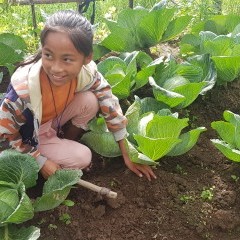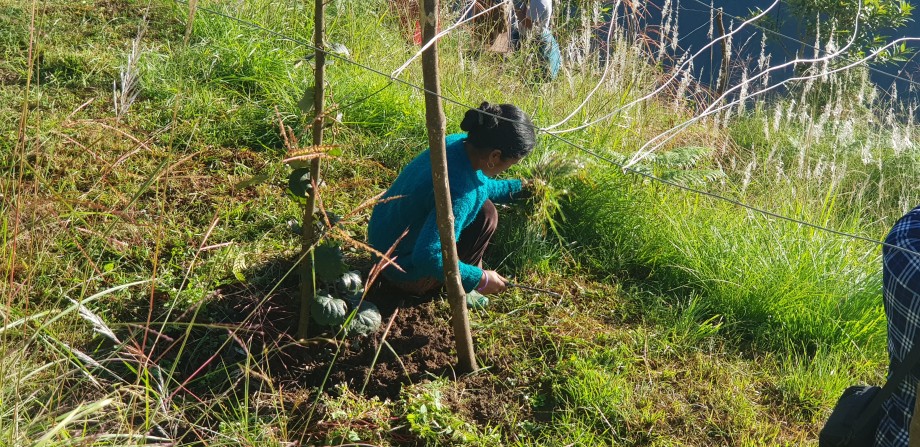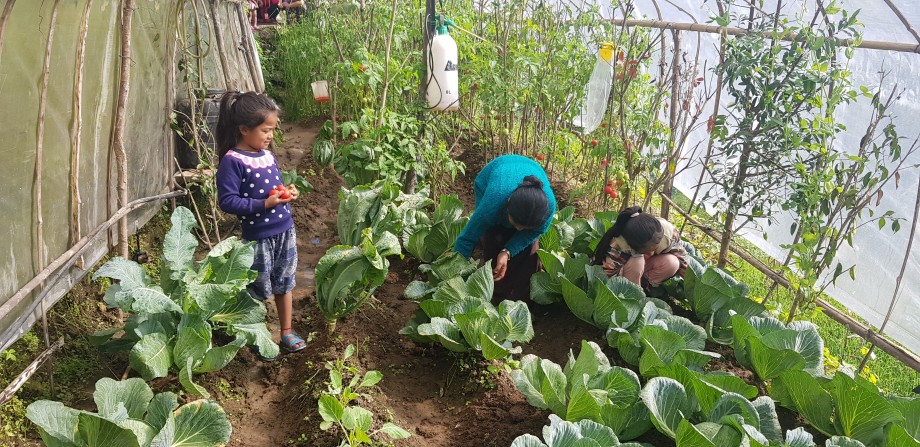Since 2018 we have been supporting the empowerment of vulnerable families - especially the women in those families - through Seeds of Hope, a project seeking to improve people's livelihood through agriculture.
We thought it was timely to give a run down of what has been achieved since then for people like Sarita, who we had the pleasure of meeting during a recent trip to Nepal.
Seeds of Hope has:
- Addressed the severe limitations of traditional subsistence farming, practiced by more than 90% of local people. Family plots were only producing enough food for 3 to 4 months of the year, leaving families vulnerable to malnutrition and economically fragile, which has had terrible implications for children who have often been pulled out of school and sent to work.
- Improved home gardens for 200 highly vulnerable families in the region (including 56 from Bhotang and 62 from Baruwa found to be living in extreme poverty), so that they are now able to produce more nutritious food. The wider varieties of fruit and vegetables they now grow serve to better feed families, and excess crops can be sold to supplement the family income.
- Addressed the lack of local knowledge about improved farming methods by providing vocational training in the field, working with local and natural materials wherever possible to construct greenhouses, establish irrigation systems and make organic fertilisers.
- Supported 115 families to plant small-scale commercial orchards, including citrus and kiwi fruit.
- Piloted oyster mushroom plots, which are showing great potential as a commercial crop and are set to be rolled out to support more families.
- Started to reduce the heavy flow of temporary migration to India and the Middle East to take up labour jobs, by providing families with an alternative way to make a living, backed up by peer and project support.
- Provided 15 enthusiastic young locals with vocational training of use to support the renewed agriculural activity and other local demand. Training has covered electronics repair, cooking and baking, agro-vet licencing and village animal health worker training.
We look forward to expanding Seeds of Hope using a social enterprise structure based on a community cooperative fund which can support future farming enterprises, creating a ripple effect on into the future.





